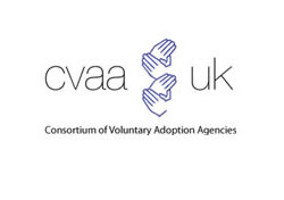Great social innovations should reach everyone, right?
Of course. But those at the frontline are only too familiar with the reasons why they often don’t.
Despite so many impactful projects and services in the UK, the reach of many remains small, with social problems growing faster than their ability to deliver support.
Rather than reinvent the wheel, how can we support effective services to change more lives?
The scale gap
So many different challenges can get in the way of scaling social impact.
Funding is an obvious issue – whether you lack access to finance, or a sustainable income model. And then there are operational issues; from overwhelming demand, to figuring out the right direction, and having the time and the right team in place to make this happen.
Part of the problem is that the different approaches to scaling impact aren’t always obvious, or straightforward.
Spring Impact launched the Scale Accelerator programme back in 2016 with a group of trusts and foundations, to bridge this gap.
There is a very real need to transform how the social sector scales impact in the UK.
Without the right strategy and support, charities and social enterprises can go down the wrong path and end up not having the impact they originally wanted. This wastes time, energy and, of course, money.
Impact, over growth
While accelerator programmes are common for helping start-ups to scale, there was little equivalent for the ambitious, mission driven organisations across the UK.
Unlike profit-led companies, charities and social enterprises aren’t chasing ‘organisational growth’ in the same way. Instead the concern is understandably increasing impact and changing more lives.
When we started the Scale Accelerator we knew it needed to approach things differently. So the programme starts with the mission, impact and change that an organisation wants to have.
The issues that mission-driven organisations are dealing with are, of course, huge. The charities and social enterprises on this year’s programme, which we are running in partnership with The National Lottery Community Fund, are addressing everything from mental health, to the lack of social mobility.
Routes to scale
For many social enterprises and charities, scaling impact will mean scaling their organisation – winning more contracts, raising more funding, employing more staff. And whilst sometimes in order to scale your impact this type of organisational growth may be needed, it may not always be.
There are a range of models that can help replicate impact in new locations - from light touch, flexible models like training, consultancy or open sourcing, through to more rigorous and controlled models such as setting up new branches, establishing a social franchise network, or social licensing.
Each of these routes has distinct benefits, whether it is greater data collection and quality control, the potential for generating new revenue, or the ability to increase reach significantly without increasing costs at the same rate.
The Foodbank network, run by the Trussell Trust charity, is a great example of an innovative model. One of the UK's most successful social franchises it now supports more than 1,200 food bank centres across the UK. Rather than reinventing the wheel, communities are empowered to set up their own food banks, ensuring the are rooted in the local context but have the benefits of a national network.
Indeed, former Scale Accelerator participant, A Band Of Brothers, chose a similar community franchise model to replicate its rites of passage programme – ‘The Quest’ – taking it from its base in the South East, to Cornwall and Oxford.
Choosing the right model requires getting really clear on your long-term vision and how scaling supports this. This can be the really tough part. You need to be clear and specific on the impact you’d like to have, what you want your organisation to look like, and how flexible you can be with your innovation so that it adjusts to different contexts.
The appetite for organisational change also plays a key role. Adopting these different models can mean you need to try and access different sources of income, as well as thinking about your team structure, skills and culture.
The Turning Point
But once charities and social enterprises reach that point of clarity, it can be a significant turning point.
We have seen so many mission-driven organisations transform their approach, turning their ambitious vision into a clear plan for meaningful action.
Sometimes the conclusions aren’t always what they expect. Some even realise they need to take a step back and slow down, to re-focus their efforts on specific areas that can make the most impact.
After all, it is really important that organisations are ready and well positioned to scale, before they start. Our replication readiness questions can help a lot here.
Once an organisation has a plan in place to scale, this rigour and confidence can help them crystalise their mission, to the point where they really accelerate forward, often winning more funding from being able to demonstrate a strong strategy.
Finding an effective way to scale social innovations is of course only the first step in the journey for many charities and social enterprises. However, it is critical to taking ideas further and changing more lives.
Joe Kallarackal is the director of Spring Impact @SpringImpact
Related articles
'Social impact bond market could be worth £1bn', says minister
The minister for civil society wants the social impact bond market to be worth £1bn by the end of this Parliament, Rob Wilson has said.
£5m adoption social impact bond is launched
The Consortium of Voluntary Adoption Agencies and Baker Tilly have launched a £5m social impact bond which will provide loans to charities to help them increase the number of adoptions of vulnerable children in the UK.
CFDG to ascertain scale of sector pensions shortfall
CFDG is to begin a consultation process with its members to identify the scale of the pension deficits in the sector and thrash out options for addressing them.












